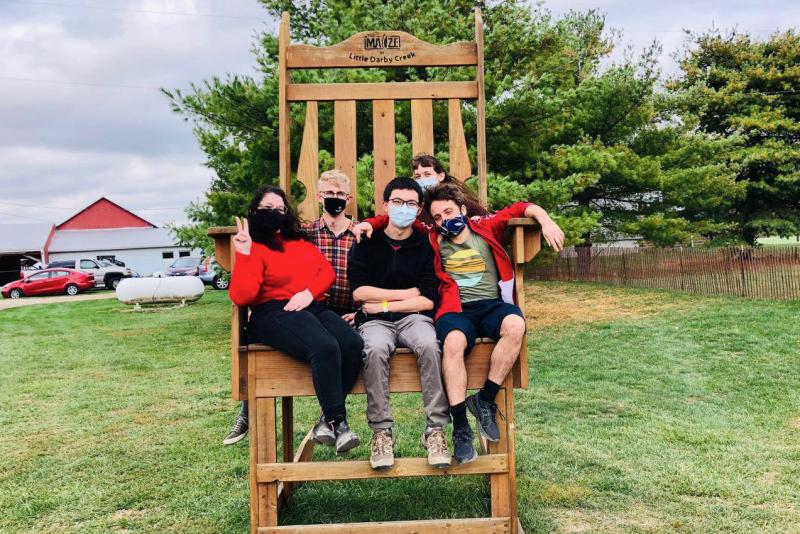
Welcome to our 2020 Graduate cohort! This has been an unusual time to begin graduate school, but our first years have adapted. For one, since they are all newly-arrived in Columbus, they formed a "pod" and have been social together while isolating from others.
Navigating online learning and making connections with faculty and other students has been difficult, but they are trying to stay connected with online study groups and discussion groups. Says Sara Court: "We've all had to be so much more intentional about how we act and interact, but that intention has been so apparent throughout this department."
Emily Napoli comes to us straight from her undergraduate degree, which means that her last semester there was also online. She says, "One of the positives of this is that I was already accustomed to the format of distanced learning when I started classes at OSU." Christian Clark adds, "I'd say I'm learning about as much as I would in in-person classes. I think I'm able to get more done than I would if I were going places on campus...if I'm able to stay focused. That's the challenge."
Christian tells us that he's had a very positive experience so far, "especially given the strange circumstances." Sara says that she has been "overwhelmed by how much support and encouragement I've received from everyone in the department this first semester." And Clayton Marr says, "It's been inspiring, really, how we've made the best of it, and how glad I am to be here." Hopefully, that will continue for the rest of the year, and our new cohort will have a successful first year in our program.
Christian Clark earned Bachelor’s degrees in Computer Science and Music from the University of Pittsburgh, where he held the Chancellor’s Scholarship. He also worked as an Applied Scientist with the Amazon Alexa team in Pittsburgh, working on pruning and optimizing language models for on-device speech recognition. He is interested in developing strategies for evaluating computational linguistics models, and contributing to technologies for low-resource languages.
Sara Court earned her BA in Linguistics from the University of Florida, and worked in Taiwan as an English, Math and college-prep instructor after her graduation. In 2019, she worked on a documentation project involving Atayal, an indigenous Taiwanese language. She is interested in applying computational linguistics to language documentation, particularly the morphology of understudied Semitic languages.
Peng-Hsuan Li holds a Master's degree from the Department of Computer Science and Information Engineering at National Taiwan University. Since graduation, he has been working as a research assistant at the Institute of Information Science on issues like named entity recognition, Chinese word segmentation, and sentiment analysis. He has published work in venues such as ACL and EMNLP. He is interested in studying the intersection of CL and information extraction, language acquisition, and language understanding.
Clayton Marr completed a Master of Science in Language Technologies from Carnegie Mellon’s School of Computer Science, where he worked on a project developing a computational simulation system for evaluating diachronic sound change. He is interested in Balkan and Romance linguistics and in computational and statistical modeling for empirical work in phonology.
Emily Napoli completed a double BA in Psychology and Linguistics from Stony Brook University, where she worked on a second-language acquisition project comparing the effectiveness of repetition-based, production-based, and comprehension-based training on later language comprehension. Her primary interests are in speech perception and second-language acquisition.
